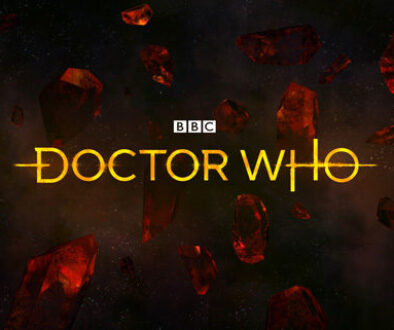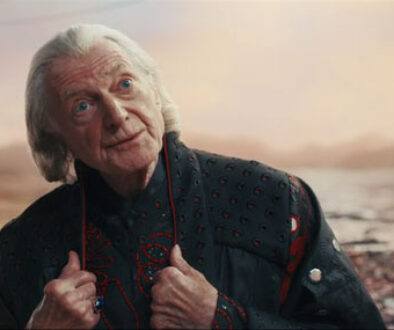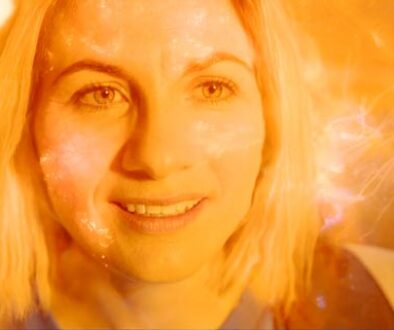Doctor Who – “The Power of the Doctor” Review – She Deserved Better
Clint Hassell gives his SPOILER-filled commentary on Jodie Whittaker’s final episode.
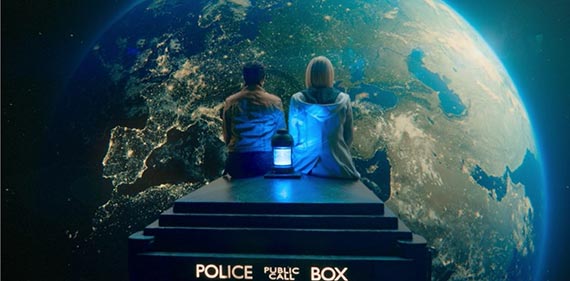
Note: this review contains full SPOILERS for the Centenary special.
The most unexpected part of Doctor Who’s Centenary special, “The Power of the Doctor,” is how expected it is. Like previous showrunners Russell T. Davies and Steven Moffat, outgoing showrunner Chris Chibnall pits his Doctor against the Master in an adventure where the Cybermen, several former companions, and notable guest stars from Chibnall’s tenure reappear. However, despite Yasmin’s assertion that the Doctor “spent her life gathering friends,” only Graham and Vinder feature. Filling out the cast are classic companions Ace and Tegan, included to honor the classic series’ 26-year run as a defining part of the BBC’s century-long history, and Kate Stewart, ostensibly to give Chibnall one last chance to write for her character.
While returning characters are always exciting—scenes that pair Ace with the Seventh Doctor and Tegan with Five provide long-deserved closure—this episode seems more focused on recreating favorite moments from the classic era than on expounding upon the companions’ lives post-TARDIS. Seeing Ace assault a Dalek with a bat is never going to match the original scene from Remembrance of the Daleks, but hearing the Seventh Doctor assure her that, “We’re more than good. We’re ace,” is worth the 33-year wait.

Considering the attention paid to classic characters, it is surprising that little mention is made of Kate Stewart’s father, Brigadier Lethbridge-Stewart, who appeared with the majority of the classic Doctors and who was last seen as a posthumously converted Cyberman foiling Missy’s plans in the Twelfth Doctor episode, “Death in Heaven.” Barring the Master mentioning that Kate’s father “was an idiot,” the script does nothing to acknowledge the Stewart family history with the renegade Time Lord. Further, there is little pathos when Kate is subjected to the same cyber-conversion process as her late father. Instead, she is uncharacteristically terrified. The episode wishes to rely on the body horror aspect of the Cyberman mythos, but the script doesn’t devote any screen time to explain why cyber-conversion is horrific beyond being terribly painful.
While some have accused Chibnall of pushing a “queer agenda”, with stories featuring a female-presenting Time Lord attracted to a female companion, it should be noted that “The Power of the Doctor” acknowledges Tegan’s two late husbands, but not her partner, fellow companion Nyssa. Tegan and Nyssa are referred to as a “couple” in Farewell, Sarah Jane. Incidentally, in extended media, Tegan was married to former companion Ian’s son; thus, in the final scene of “The Power of the Doctor,” Tegan could be sitting near her father-in-law!

Though its coherence improves upon a second viewing, the storyline of “The Power of the Doctor” is, like last series’ Flux, unwieldy and nonsensical. Taking the adage of “show, don’t tell” to unnecessary extremes, Chibnall sometimes fails to include enough exposition to tie his visuals together. The basic plot involves the Master attacking the Doctor on two fronts: using the Cybermasters and Time Lord technology to forcefully regenerate the Doctor, in 1916, and aiding the Daleks as they try to flood the Earth with lava, in 2022. However, some of the lesser story beats raise more questions than they answer:
- Why is the Master impersonating Rasputin? Is this just Chibnall’s love of historical episodes showing through? Further, why does the Master deface several famous paintings? Is he leaving clues of his presence to taunt the Doctor? When did the Master go from being a Bond villain to being a Batman villain?

- Why are the Cybermen and Dalek halves of “the Master’s Dalek plan”—this episode’s most clever pun—spread across 106 years? Just to have an element of time travel in Thirteen’s last adventure? If the Doctor and Yaz are free to collect companions from across time and space, why not feature Tegan and Ace from their respective tenures with the Fifth and Seventh Doctors? Obviously, the answer to that question is that the actresses have aged; however, with such emphasis placed on classic companions in a modern setting, why is the story not focused solely within the present-day time frame?
- Rather than merely be a ruse to capture the Doctor, the sympathetic Dalek is revealed to have actually defected from the Dalek hive mind. Why was no background given to this decision? Really, the Daleks are extraneous to this story. The Master could’ve merely decimated Earth via the Cybermasters, once the Doctor was out of the way. Why overcomplicate the narrative merely to include the Daleks? Name recognition? Contractual obligation? Or did Chibnall really want to see Ace hit another one with a bat?
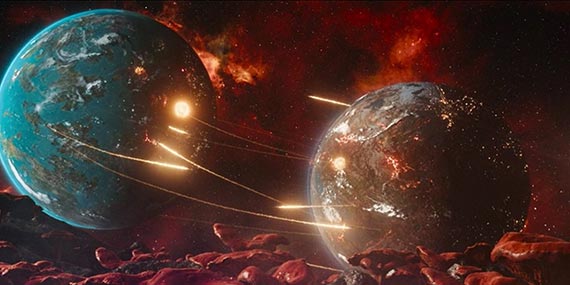
- Why are these two planets at war? It’s inferred that the Master has engineered the warfare between these two planets and, now that he has assumed the Doctor’s form, is claiming responsibility for the destruction to tarnish her name, but nothing is overtly explained. Of the Doctor’s recurring villains, the Master loves to monologue the most, so this lack of explanation feels out of character.
- Further, why does Chibnall use the plot device of forced regeneration? The move seemingly removes the Doctor from the action, allowing Yaz, Ace, Tegan, and Kate a chance to shine. Rather than take that advantage, however, the script repeats the Flux finale, splitting the Doctor into three copies, allowing the character to be in multiple places at the same time. This overexposes the Doctor, as she can now be in every scene and is limited only by her non-corporeal nature.
- Why does the Thirteenth Doctor’s regeneration energy also change her clothing? This breaks with a 52-year tradition of a new Doctor regenerating into the previous Doctor’s outfit. Is the audience to infer that, somehow, this regeneration isn’t what it seems? Or, did David Tennant not think he could pull off women’s culottes with the same panache as Sacha Dhawan? Perhaps a better solution would’ve been to leave Thirteen dressed in the Master’s outfit—a mix of many previous Doctors’ costumes—which also would have foreshadowed the seemingly mixed-up regeneration.

Clarity issues aside, Chris Chibnall makes one interesting script decision that deserves mention: companion Dan Lewis is written out of the series, early in the first act. Dan has never worked as a companion. While John Bishop is certainly affable, Dan has lacked agency within the narrative and the series has struggled to find ways for him to contribute to the plot. It says something about the character that he can be replaced in “The Power of the Doctor” by a guest star from Flux and two classic companions and not be missed. Chibnall has hammered many ideas that clearly were not working into scripts—including retaining Ryan and Graham beyond Series 11, the Timeless Child storyline, and the majority of Flux—so, to see him recognize that Dan was unnecessary and provide him a quick exit is a welcomed surprise. It is not necessary to see Diane again, or Dan’s parents. The shot of Dan’s shrunken house is a suitable end to modern Who’s most forgettable companion.
Unfortunately, Yaz doesn’t get the same respect, as her exit from the series does little to resolve her character arc. Since “Legend of the Sea Devils” has already explored why the Doctor cannot be in a relationship with a human—not a new concept for the show, and one that gets repeated every few years—the inherent question isn’t, “Will Yaz and the Doctor end up together?” but, “How will Yaz’s relationship with the Doctor change her life?” “In what state will she return to her family?” “Will she be open to her realized sexuality?” and, “Will she want to continue being an agent for change, much like Graham and Ryan?” The episode answers none of these questions; rather, Yaz is seen attending a support group of previous companions, a scene that focuses more on the surprise cameos from Ian, Jo, and Mel than on Yaz’s well-being. This is especially frustrating as these questions don’t need to be directly answered for the audience. Consider Martha Jones’ exit from the TARDIS: her final scene didn’t detail exactly what she was leaving to do, but you knew what her mindset was and could be confident of her character’s direction. The same can be said of Amy and Rory, Clara, Nardole, and even Donna. Heck, Adam Mitchell got a more fully realized companion exit than Yasmin. As one of Who’s longest-serving companions, she deserved better.

Random musings:


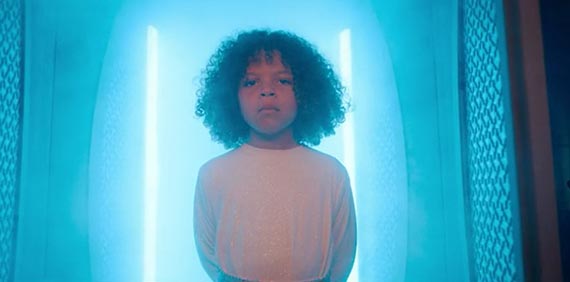
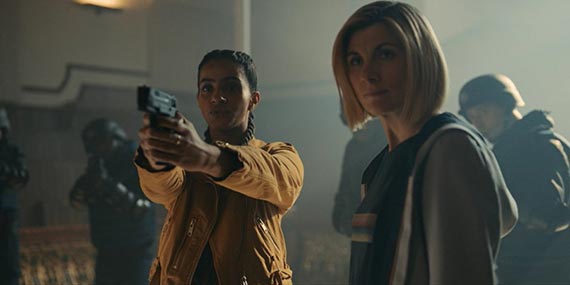
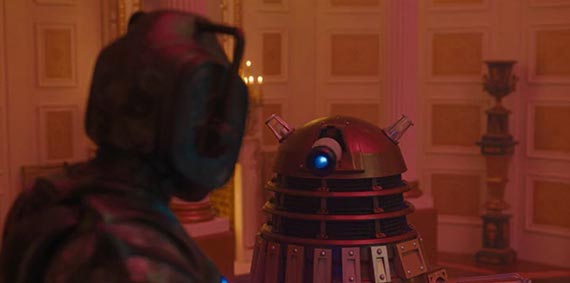
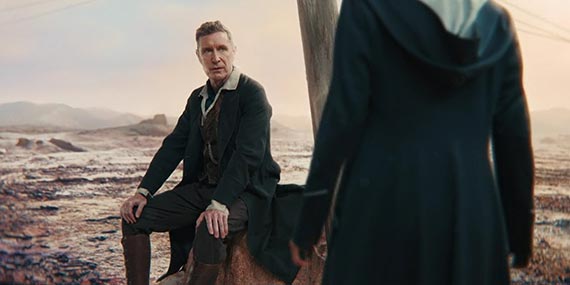
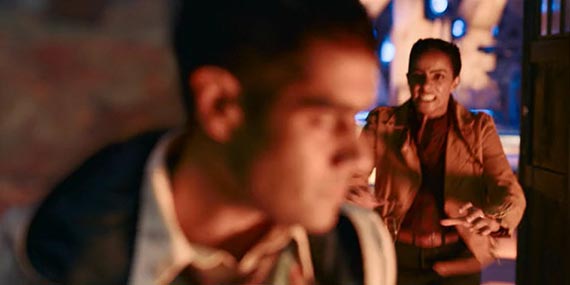
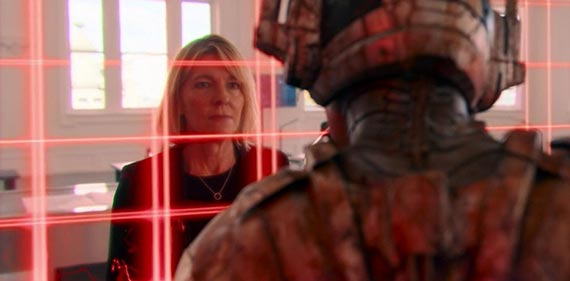
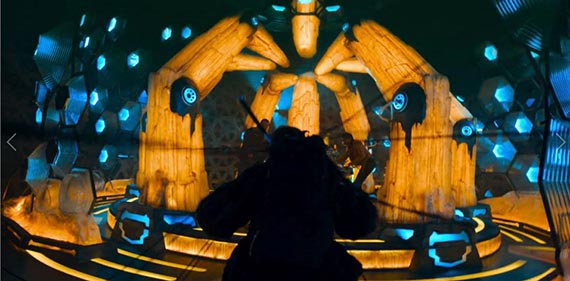
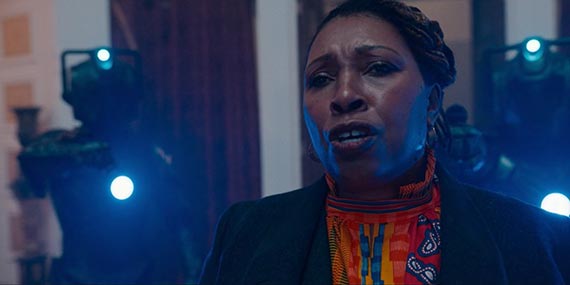
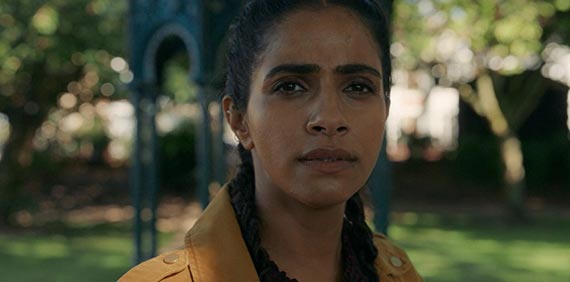
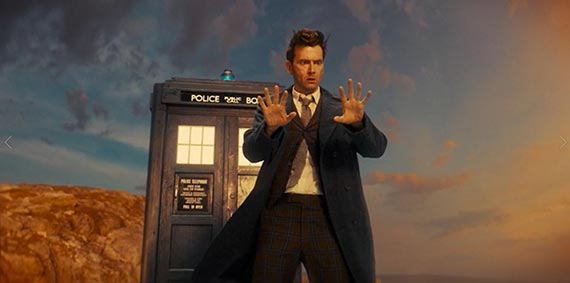
(Time) Capsule Review
Despite using The End of Time and “The Doctor Falls” as narrative templates, and including classic companions Tegan and Ace, “The Power of the Doctor” is an unsatisfactory conclusion to Chris Chibnall’s tenure as showrunner. While the many Easter eggs and surprise cameos add to the spectacle of the BBC’s Centenary special, the script is hampered by missed opportunities and confusing asides, and the episode fails to wrap up the character arcs of its two exiting leads.
If you’d like to interact with the author of this article, follow him on Twitter @ClintHassell.




